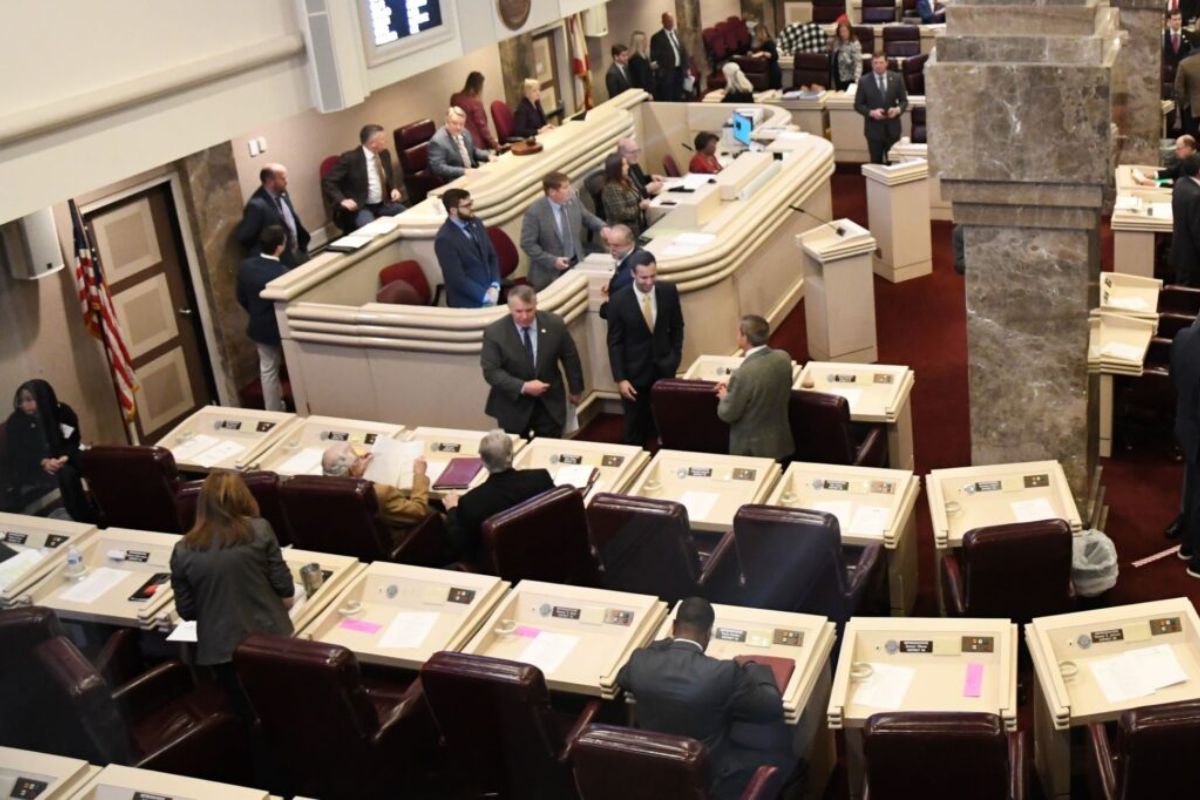Alabama Budgets Set to Move: Alabama legislators are facing disagreements over funding allocations for agencies in the upcoming 2025 fiscal year budgets amidst general fund friction. State budget officials urge caution due to projections of reduced budget increases and declining interest on state accounts. Education funding is a focus, with proposed initiatives like the Literacy and Numeracy Act and potential teacher pay increases.
Efforts are underway to modernize funding approaches and prioritize the sustainability of Alabama’s financial landscape. The evolving approaches to education funding and policy involve innovative financial allocation strategies and considerations for adjusting funding formulas. Learn more about the budget priorities and collaborative efforts shaping Alabama’s financial future.
Disagreements Over State Budget Priorities
As Alabama legislators work on the budgets for the 2025 fiscal year, disagreements over state budget priorities have emerged, particularly concerning the funding allocations for agencies such as the Alabama Law Enforcement Agency (ALEA), Department of Corrections, and Bureau of Pardons and Paroles. Rep. Rex Reynolds and Sen. Greg Albritton, chairs of their respective chambers’ General Fund committees, have acknowledged these differences.
Despite efforts to find common ground, specific details regarding budget allocations remain undisclosed as legislators grapple with conflicting perspectives. The divergent views on funding priorities within the General Fund committees highlight the complexity of balancing the needs of agencies like ALEA, the Department of Corrections, and the Bureau of Pardons and Paroles.
These disagreements underscore the challenges faced by lawmakers as they navigate competing demands for financial resources in the upcoming fiscal year. Finding a resolution that addresses the concerns of all parties involved will be essential to ensuring effective governance and service delivery in Alabama.
Caution Urged Amid Fiscal Outlook
Against a backdrop of disagreements over state budget priorities, caution is being strongly advised by state budget officials due to projections of reduced but healthy increases in both the General Fund and Education Trust Fund budgets for the upcoming fiscal year. The concerns stem from declining interest on state accounts, prompting calls for prudence and one-time funding allocations.
State legislators are emphasizing the necessity to address the capital needs of state agencies while also preparing for potential challenges in future budget cycles. This cautious approach aims to guarantee the sustainability and stability of Alabama’s financial landscape amidst evolving economic conditions. By exercising caution and strategic planning, officials hope to mitigate risks and safeguard the state’s fiscal health.
The current fiscal outlook necessitates a balanced and thoughtful approach to budgeting, considering both short-term needs and long-term financial stability. State leaders are urged to prioritize essential expenditures and explore innovative solutions to navigate the uncertainties ahead, fostering a resilient budget framework that can adapt to changing circumstances.

ALSO READ: Residency Debate Dominates Alabama District 2 Democratic Race
Focus on Education Funding and Policy
Legislators are currently prioritizing discussions surrounding Education Trust Fund (ETF) allocations and policy adjustments to address key challenges within Alabama’s education system. Proposed initiatives, such as the Literacy and Numeracy Act, aim to enhance student performance, while potential increases in teacher pay seek to attract and retain high-quality educators. Additionally, considerations for adjusting budget caps and allocating resources towards advancement and technology funds illustrate ongoing efforts to improve educational outcomes and modernize funding approaches.
These initiatives highlight a concerted effort to bolster Alabama’s education system, emphasizing the importance of investing in both students and educators. By focusing on policies that directly impact teaching quality and student achievement, legislators aim to create a more robust educational environment that prepares students for success in an ever-evolving world. As discussions progress, stakeholders anticipate meaningful changes that will not only address current challenges but also pave the way for a more sustainable and effective education system in Alabama.
Evolving Approaches to Education Funding and Policy
Efforts to modernize education funding and policy in Alabama are centered around exploring innovative approaches to financial allocation and governance structures. This includes the consideration of alternative funding mechanisms such as the Educational Opportunities Reserve Fund and the CHOOSE Act.
Legislators are actively evaluating potential adjustments to the funding formula and the role that reserve funds could play in facilitating the shift to new funding structures. Despite varying perspectives among legislators, there is a shared goal of aligning on budget priorities and engaging in collaborative efforts to navigate the budgeting process effectively.

News in Brief
The state of Alabama is facing challenges in establishing its budgets, particularly in the domain of education funding and policy. As fiscal outlooks remain uncertain, caution is recommended in making decisions that could impact the state’s overall financial health.
It is crucial for policymakers to prioritize education funding and policy in order to guarantee the long-term success and well-being of Alabama’s residents.
Our Reader’s Queries
What is the budget of the state of Alabama?
Alabama’s FY2024 budget, passed in June 2023, allocated $8.8 billion to the Education Trust Fund and $3.0 billion to the general fund, marking a 7% and 10% increase, respectively, over the previous budget.
How much money does the state of Alabama have?
Alabama faces a financial shortfall, with assets totaling $17.2 billion falling short of $27 billion in bills, resulting in a deficit of -$9.8 billion. To bridge this gap, each Alabama taxpayer would need to contribute -$7,000 to the state.
What is Alabama education Trust Fund?
The Education Trust Fund (ETF) budget supports all state education initiatives, covering K-12 programs and higher education endeavors.

